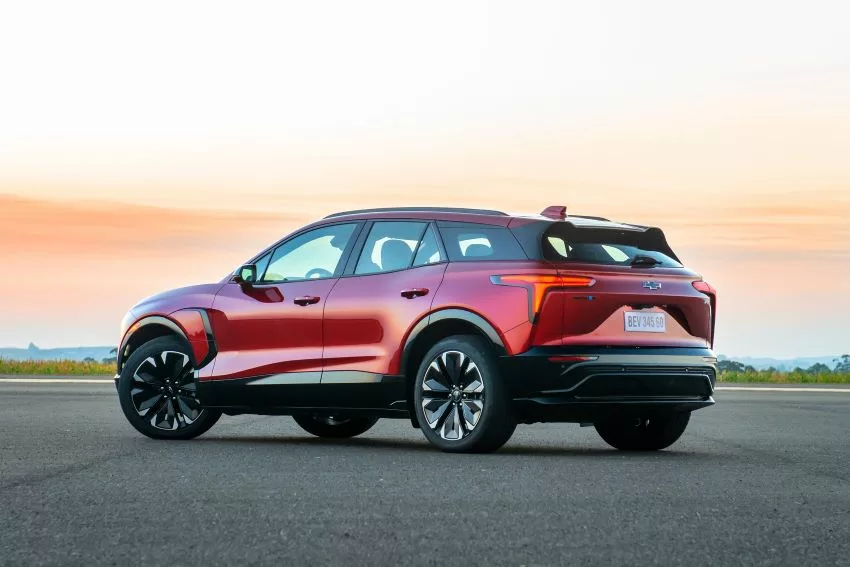Electric vehicles (EVs) are no longer just a trend in developed nations; they’re making waves in emerging markets too. Brazil, with its rapidly growing electric vehicle market, is a prime example of how emerging economies are shaping global clean energy trends. In 2022, Brazil saw a staggering 77% increase in EV sales, according to InsideEVs, positioning itself as a leader in Latin America’s transition to sustainable mobility. This article will explore how Brazil’s burgeoning EV market is influencing global clean energy trends, the factors driving this growth, and what it means for the future of sustainable transportation.
The Rise of Electric Vehicles in Brazil
Brazil’s EV Market Growth: A Statistical Overview
In recent years, Brazil has become a significant player in the electric vehicle sector. The country’s commitment to reducing carbon emissions is evident in its increasing investment in EV infrastructure. According to Bloomberg Green, Brazil aims to have 30% of its vehicle fleet electrified by 2030. This ambitious target is supported by substantial government incentives, including tax reductions and subsidies for EV manufacturers and buyers.
- 77% increase in EV sales in 2022
- 30% electrification target by 2030
- Government incentives: Tax reductions and subsidies
The Brazilian government’s policies are instrumental in driving the country’s EV market, making it a beacon of clean energy transformation in Latin America.
Factors Driving Brazil’s EV Adoption
Several factors contribute to the rise of electric vehicles in Brazil:
- Government Support: Policies such as reduced import taxes and subsidies for EVs make them more affordable for consumers. The government is also investing in public charging infrastructure, easing one of the significant barriers to EV adoption.
-
Public Awareness: Campaigns aimed at educating the public about the environmental benefits of EVs have increased consumer interest and acceptance.
-
Local Manufacturing: Companies like BYD and Volkswagen are setting up production facilities in Brazil, reducing costs and improving local supply chains.
-
Renewable Energy Integration: Brazil’s reliance on hydropower (over 60% of its energy mix) means that EVs are more sustainable in Brazil than in countries dependent on fossil fuels.
Global Implications of Brazil’s EV Surge
Brazil’s advancements in the EV sector have far-reaching implications beyond its borders, influencing global clean energy trends:
- Technology Transfer: Brazilian innovations in EV manufacturing and renewable energy integration offer valuable insights to other emerging markets.
-
Supply Chain Diversification: The establishment of local manufacturing facilities creates a more resilient global supply chain, reducing reliance on traditional EV markets like China and the US.
-
Environmental Impact: By transitioning to EVs, Brazil sets an example for other emerging markets in reducing carbon footprints and promoting sustainable practices.
Practical Tips for Embracing Brazil’s EV Movement
How to Charge Your EV in Brazil
Charging infrastructure is rapidly expanding in Brazil, with several options available for EV owners:
- Public Charging Stations: Found in shopping malls, parking lots, and along major highways. Companies like EDP and Enel X are leading the charge in expanding this network.
-
Home Charging: Installing a Level 2 home charger can significantly reduce charging times. Many Brazilian households are opting for solar panels to power these chargers, further enhancing their green credentials.
Where to Buy Electric Vehicles in Brazil
With the growing demand for EVs, several dealerships and online platforms offer a range of models:
- Authorized Dealerships: Brands like Nissan, Hyundai, and BYD have a strong presence in Brazil, offering models tailored to local needs.
-
Online Platforms: Websites like OLX and WebMotors provide platforms for buying new and used EVs, often at competitive prices.
What to Compare When Buying an EV
When choosing an electric vehicle, consider the following factors:
- Range: Ensure the EV can meet your daily travel needs. Models like the Nissan Leaf and Hyundai Kona Electric offer excellent range for urban commuters.
-
Charging Options: Check the availability of charging stations in your area and whether home charging is feasible.
-
Cost: Factor in the total cost of ownership, including maintenance, insurance, and potential government incentives.
-
Brand Reputation: Consider brands with a solid reputation for reliability and customer service.
Conclusion: Brazil’s Role in the Future of Clean Energy
Brazil’s electric vehicle market is not only transforming its transportation landscape but also setting a precedent for global clean energy trends. By embracing EV technology, Brazil demonstrates the potential for emerging markets to lead in sustainable innovation. As the country continues to invest in infrastructure and policy, it offers a blueprint for other nations looking to reduce their carbon footprint and promote eco-friendly mobility.
Are you ready to join the electric revolution in Brazil? Share your thoughts on how emerging markets can contribute to global sustainability in the comments below. As we look to the future, Brazil’s example shows that a cleaner, greener world is within reach, powered by the innovative spirit of emerging economies.

